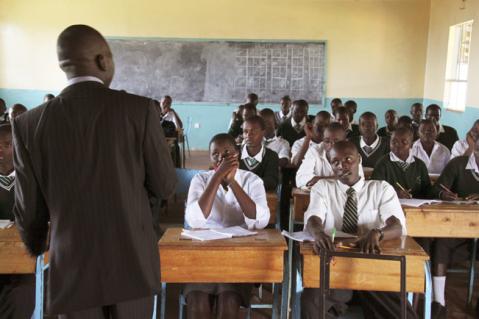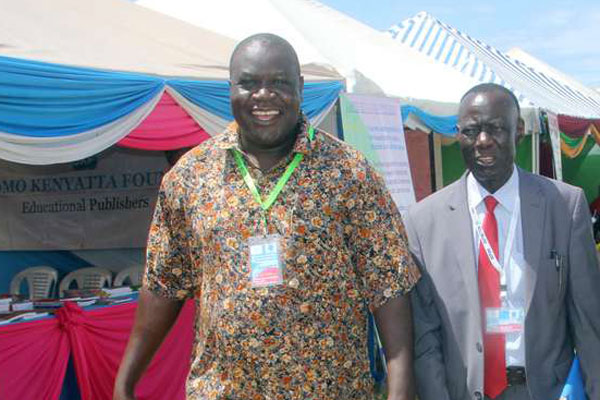Kenia / 16 de agosto de 2017 / Por: EGARA KABAJI / Fuente: http://www.nation.co.ke/
One of the key pillars in building a strong nation is a sound education system that produces thinkers and entrepreneurs.
The government has demonstrated its commitment to realigning the education system to the Constitution and Vision 2030, provide quality education, expand access to education, empower the youth to participate fully in national development and enhance national cohesion.
That is why it has become mandatory to overhaul the 8-4-4 system.
Mastering the courage to overhaul the 8-4-4 education system has not been easy, especially with many stakeholders having developed a romantic attachment to the system.
It is characterised by massive wastage and cut-throat competition for grades.
The new competency-based education system is aimed at making the education system responsive to the imperatives of Vision 2030.
ACHIEVED OBJECTIVES
In changing the education system, the Government was in essence acknowledging the fact that the 8-4-4 system of education has not largely achieved its objectives.
So what is this new system all about? It is all about acquisition of skills to perform various tasks.
Competency based education is now popular all over the world. At the core of competency based education is the focus on what learners can do rather than on what they know.
It, therefore, focuses on measurable outcomes. The knowledge and skills they acquire should stretch beyond the classroom and be useful in the learners whole lifetime.
That is why teachers have to be carefully prepared to handle this curriculum.
Under this system, the role of the teacher has to change from an information giver to a facilitator.
GUIDANCE
Teachers have to only provide the democratic environment, materials, the activities and guidance to the learners.
The teacher has to identify each competency and plan for activities to instil the skills.
The teacher should give learners opportunity to learn and practice those skills until they acquire them.
But in all these, the teacher has to take into consideration personal differences of the learners and deal with each learner as an individual.
More significantly, teachers need ample time to assess students and provide specific, directed and personalised feedback.
The teacher should be keen on outcomes and assess the application of what has been learned in the form of actions and performances.
INFORMATION
The role of the student under the new system has to also change. Students should no longer rely only on the teacher and the classroom as the primary sources of information.
They are expected to be active agents that interrogate, produce and extend knowledge.
They should be made to think critically and to adapt, transfer and apply knowledge across a variety of settings.
That is why the classroom has to be an interactive space that encourages experimentation and exchange of ideas.
Classroom activities and teaching strategies have to equally change. Learning is considered a social activity. Teachers should develop strategies that are progressive.
Performance activities should aim at making the students to practice the requisite skills. And that is why class materials must be oriented to doing rather than knowing.
RE-TRAINING
My plea to the Ministry of Education is to provide enough funding if this system has to succeed.
We also need a well co-ordinated national strategy for the training and re-training of teachers.
In the same vein, we have to overhaul the whole assessment system. Use of formative assessments will help determine how well a student is progressing along the path to competency.
These assessments have to be frequent and specific. Their goal should be to assess progress and provide information about strengths and weaknesses towards achieving a competence.
Now that we have all accepted to cross to the new system, we now have to embark on re-orienting our teacher training institutions, including universities.
Prof. Kabaji is the Founding Principal of Turkana University College (TUC) egarakabaji@gmail.com
Fuente noticia: http://www.nation.co.ke/oped/Opinion/Prepare-teachers-for-new-education-system-/440808-4054166-k6n1r6/index.html














 Users Today : 6
Users Today : 6 Total Users : 35460679
Total Users : 35460679 Views Today : 8
Views Today : 8 Total views : 3419790
Total views : 3419790